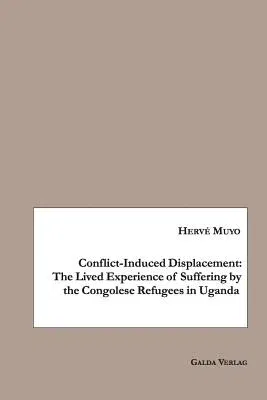Hervé Muyo
(Author)Conflict-Induced Displacement: The Lived Experience of Suffering bythe Congolese Refugees in UgandaPaperback, 28 February 2019

Qty
1
Turbo
Ships in 2 - 3 days
In Stock
Free Delivery
Cash on Delivery
15 Days
Free Returns
Secure Checkout
Print Length
160 pages
Language
English
Publisher
Galda Verlag
Date Published
28 Feb 2019
ISBN-10
3962030557
ISBN-13
9783962030551
Description
Product Details
Author:
Book Format:
Paperback
Country of Origin:
US
Date Published:
28 February 2019
Dimensions:
23.39 x
15.6 x
0.86 cm
ISBN-10:
3962030557
ISBN-13:
9783962030551
Language:
English
Pages:
160
Publisher:
Weight:
231.33 gm

